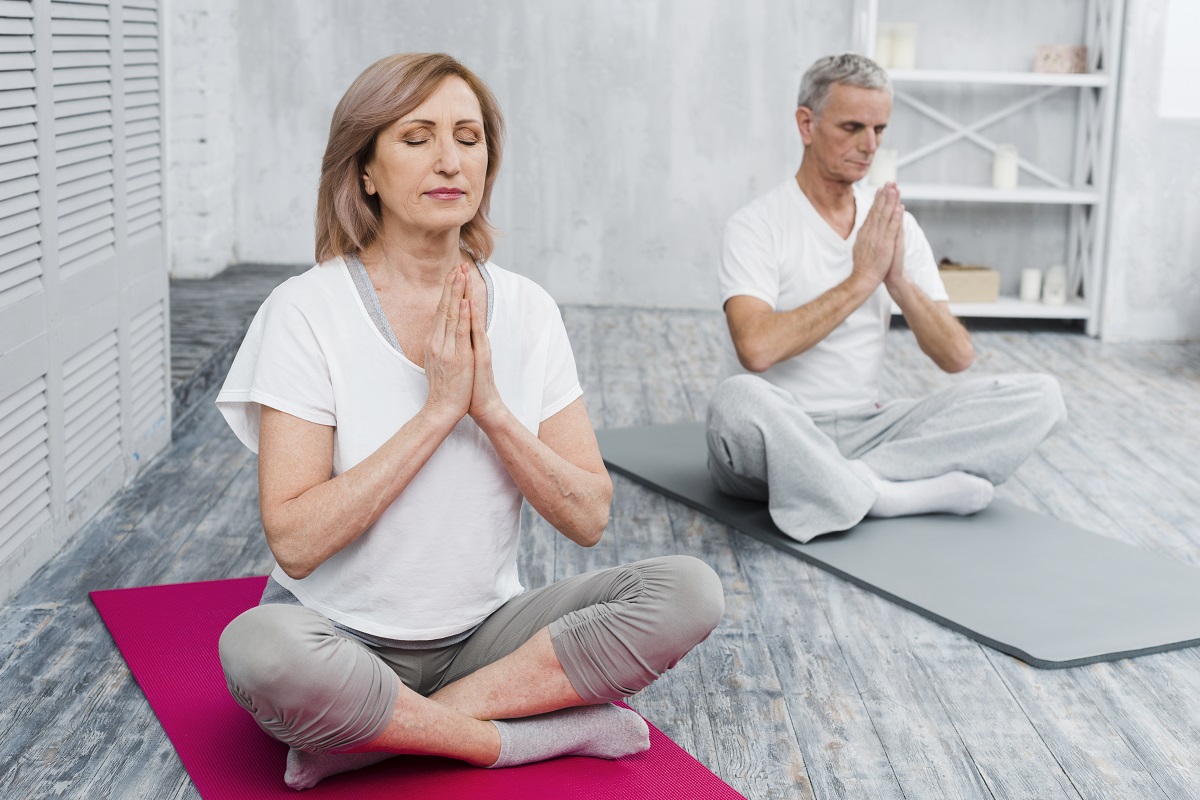
Senior Meditation
As people get older, they become more concerned about their physical health than their mental health, while mental health is just as important as physical health and should be given special attention. One way to address mental health is conscious meditation, which has many physical and mental benefits. Meditation is not a new subject and people have been meditating since 5000 BC.
What is mental meditation?
Meditation is actually learning how to be present, aware and not judge. Practicing mental meditation calms the mind and body and is an effective way to deal with stress. In meditation, one should just sit still or lie down and look at the thoughts that go through. When you meditate, your breath slows down and your heart rate decreases, lowering your blood pressure, stress and tension. Mindfulness is simply the observation and acceptance of thoughts that occur without judgment. In meditation, the mind focuses on the present instead of worrying about the future or contemplating the past, blocking anything that distracts.
Conscious meditation is just one of many meditation techniques. A combination of meditation, body awareness, yoga, and exploring behavioral patterns can help people with stress, anxiety, depression, and pain. Meditation does not require a specific place or time. Everyone can do a conscious meditation practice at any time and any place.
How does mind meditation help the elderly?
Potential benefits of conscious meditation for the elderly include better concentration, increased relaxation, less stress, and improved sleep. Research shows that mindfulness and meditation can reduce depression and pain and help older people cope with their current situation and cope with the challenges of aging.
Meditation stimulates memory. Research in the United States shows that meditation increases short-term and long-term memory. A recent study found that it may even slow the progression of Alzheimer's. Not only does it activate "feeling good" in the brain, but it can also improve concentration, creativity and cognitive function in the brain.
Mindfulness makes it easier for people to focus on and manage their moods and emotions.
How to start a mental meditation practice?
Set aside a specific time and place for meditation. Start small, for example 10 minutes a day. It may be difficult at first to do this and your mind will run away from it and a flood of thoughts will invade you.
Sit still or lie down comfortably. Take deep abdominal breaths. Focus on your inhale and exhale and acknowledge every emotion your body tells you. Whether lying down or sitting, check the position of your body so that your body is in a correct and comfortable position and there is no pain or discomfort anywhere.
Try to clear your mind completely. Many thoughts will try to get your attention. Accept these thoughts kindly and invite them to peace and liberation. Feel the inhale and exhale in your abdomen and focus on it. At the end of the meditation time, take a moment to thank your body and mind, for taking the time to pay attention to your feelings.
On various websites such as YouTube you can find many videos about conscious meditation for the elderly, there are even many apps for this that you can get help from. Or there are some podcasts in this field that can be useful. You can even inquire whether meditation classes are held at local nursing homes, hospitals or retirement centers. Doing a mindfulness program routine can help you learn to bring more mindset into your daily life.

 Our Location
Our Location +1 (778) 723-6108
+1 (778) 723-6108
Leave Your Comment